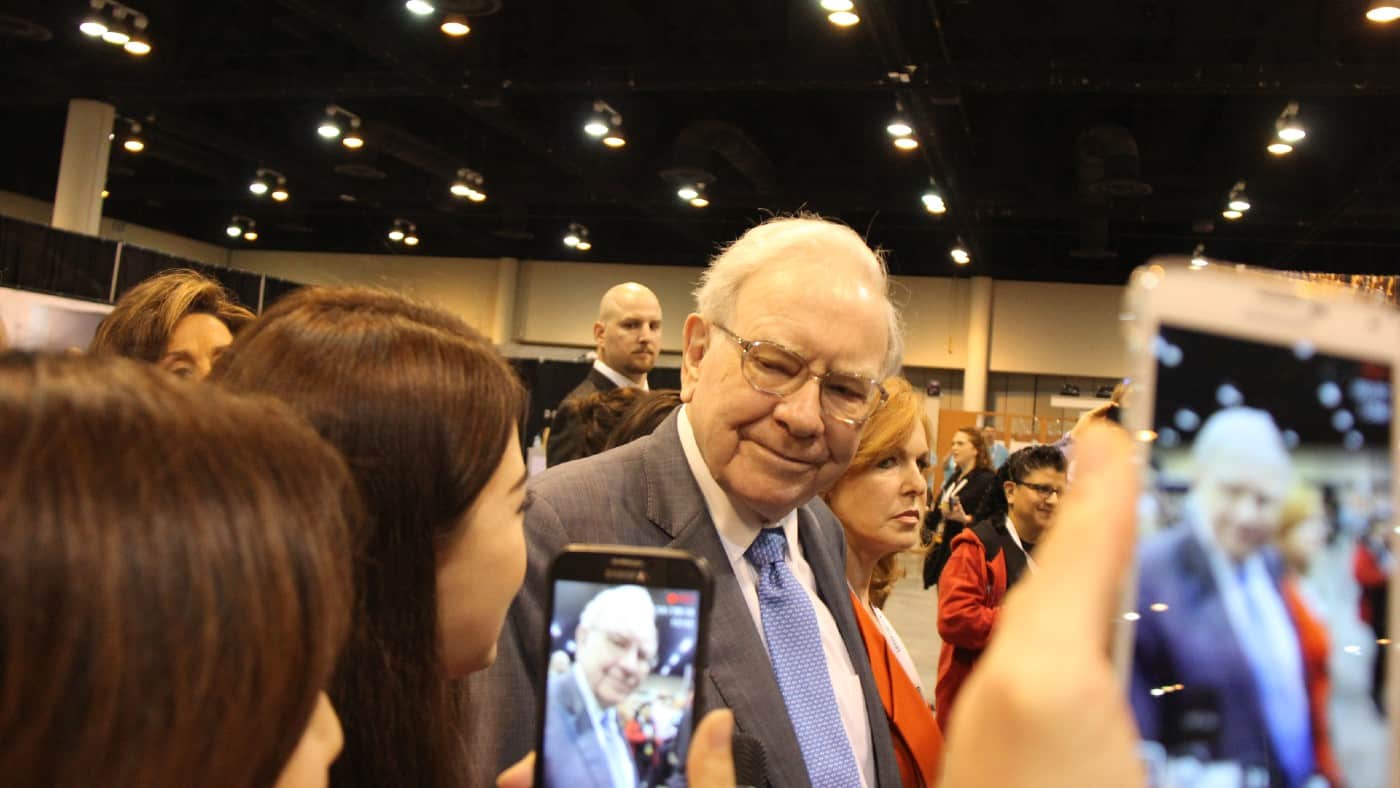In September, Warren Buffett’s conglomerate Berkshire Hathaway had a record cash pile of around $149bn. And given his investment history, I reckon it’s safe to assume he thinks stocks and businesses have been expensive. He hasn’t made a big acquisition within Berkshire Hathaway for years and he’s known for avoiding stocks when he thinks they’re overpriced.
Buffett’s focus on quality
I’ve been reading a book called The Warren Buffett Stock Portfolio by Mary Buffett and David Clark. It explains how the great investor got out of the stock market altogether in 1969 when he thought valuations were too high. Prior to that, he’d made a fortune for himself and his investment partners by following Benjamin Graham’s deep-value investing techniques. But cheap shares became hard to find, so he stopped looking.
Instead, he avoided stocks completely until the market crash of 1973/74. Then, when valuations plummeted, he began buying again. But his strategy was different. Instead of looking for a quick return from the cheap shares of low- or mediocre-quality businesses, he went shopping for quality.
Should you invest £1,000 in Tesla right now?
When investing expert Mark Rogers has a stock tip, it can pay to listen. After all, the flagship Motley Fool Share Advisor newsletter he has run for nearly a decade has provided thousands of paying members with top stock recommendations from the UK and US markets. And right now, Mark thinks there are 6 standout stocks that investors should consider buying. Want to see if Tesla made the list?
From that point, he tended to buy quality businesses — or their shares — and hold them for the long term. So, we don’t see Buffett cashing out of the market altogether anymore. But we do see him refrain from buying stocks or making acquisitions when he thinks valuations are too high. And that’s when the cash piles up in Berkshire Hathaway from dividends and cash flowing from the businesses the conglomerate owns outright.
Buying when the price is right
But since the 1970s, Buffett has shown us time and again that he’s willing to buy stocks and businesses at opportune moments when valuations are lower. He’s often out deploying Berkshire Hathaway’s cash when stock markets are crashing and everyone else is worried about something. However, he doesn’t buy any old rubbish. He shops carefully for businesses with an enduring competitive advantage over their competitors.
He calls such beasts “wonderful” businesses. And he’s of the opinion the stock market is made up of many low-quality or mediocre businesses and a small number of excellent businesses.
However, although the concept is simple, executing the Warren Buffett method isn’t easy. One of the problems for me is good-quality businesses tend to almost always attract a higher valuation than mediocre businesses. That’s why Buffett often pays a “fair” price for excellent businesses rather than a cheap price. And that’s even when stock markets are crashing around his ears and many people are selling or avoiding stocks.
But the longer-term returns from high-quality businesses can be worth having. And one way to try to find them is by looking for businesses with chunky returns compared to equity or invested capital and robust operating margins. For example, I think premium branded alcoholic drinks giant Diageo is an excellent business. And so is information and analytics specialist Relx. Both stocks have gone up by hundreds of per cent over the past 10 years.
Of course, positive investment outcomes aren’t certain, even if I shop for quality stocks, because all shares carry risks. But if there’s another market crash taking valuations lower, I’ll look for quality stocks like these and others to buy and hold for the long term — just like Warren Buffett has done in the past.








